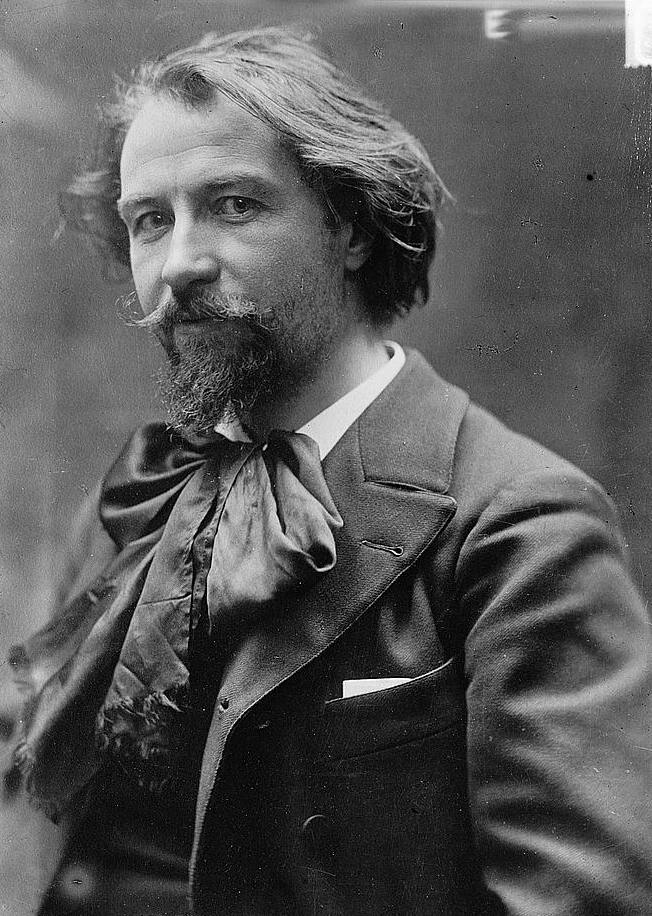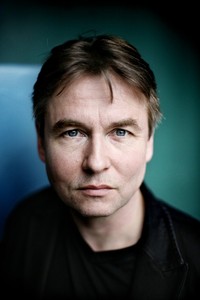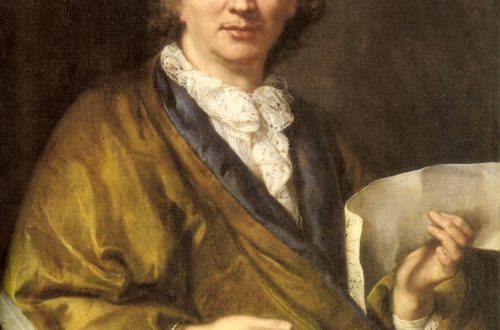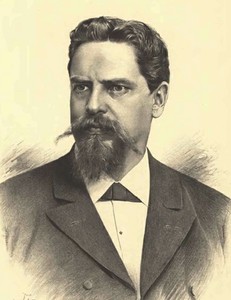
Gustave Charpentier |
Gustave Charpentier
Charpentier. “Louise”. Prelude to Act 2
French composer and musical figure. Member Institute of France (1912). In 1887 he graduated from the Paris Conservatory (student of L. Massard, E. Pessard and J. Massenet). Rome Prize for the cantata “Dido” (1887). Recognition and fame brought the composer the opera “Louise” (libre. Charpentier, based on a plot from the life of Parisian workers, 1900). Implementing the traditions of lyric opera and verismo, Charpentier created a kind of musical drama. work, calling it “music. novel”, which emphasized his desire to bring opera art closer to the everyday truth of life. Realistic tendencies manifested themselves here in psychology, in the disclosure of the family drama of the characters, in the social character of the characters. The intonations of the mountains are truly and poetically embodied in the music. everyday speech: the cries of peddlers, the dissonance of the Parisian streets, the joyful hubbub of the bunk. festivities. Wok. and orc. Charpentier’s parties make extensive use of motifs-characteristics and motifs-symbols. Lyric written in 1913 and enchanting the drama “Julien” (libre. Charpentier; the music of the dramatic symphony “The Life of a Poet” is partially used in the opera) is to a certain extent autobiographical. Democratic man. views, Charpentier led an intensive musical-enlightenment work, organized mass bunks. music festivities, wrote music for them, tried to create a nar. t-r, founded Nar. conservatory (1900), named Institute of Mimi Penson (after the heroine from the short story by A. Musset). Works: operas – Louise (1900, tr Opera Comic, Paris), Julien, or The Life of a Poet (Julien ou la vie du poete, 1913, Monte Carlo and tr Opera Comic, Paris); nar. epic in three evenings – Love in the suburbs, Comedian, Tragic actress (Amour aux faubourg, Comedienne, Tragedienne; not completed); music apotheosis in 6 parts for Nar. festivities The Coronation of the Muse (Le couronnement de la muse, 1898, Lille); for soloists, choir and orc. – Dido’s cantatas (1887) and Victor Hugo’s centenary (1902), drama. symphony The life of a poet (La vie du poete, 1892), Deceptive impressions (Impressions fausses, el. P. Verlaine, 1895); for orchestra — Three Preludes (1885), Suite Italian Impressions (Impressions (TItalie, 1890); Watteau’s Serenade for voice with orc. (Serenade a Watteau, lyrics by A. Tellier, 1896); for voice with piano — Flowers of Evil (c. Ch. Baudelaire, some with a choir, 1895; also for voice with orc.), Poems for singing (Poemes chantes, ed. Verlaine, C. Mauclair, E. Blemont ”J. Vanor, 1887-97) and etc.
Lit .: Asafiev B., About the opera. Selected articles, L., 1976, p. 257-60; Bruneau A., Le muse de Paris et son poete, in his collection: Musiques d’hier et de domain, P., 1900 (Russian translation – Bruno A., Muse of Paris and her poet, in collection: Articles and reviews of French composers, late 1972th — early 1900th century, compiled, translated, introductory and commentary by A. Bouchen, L., 1918); Dukas P., “Louise”, “Revue hebdomadaire”, 1924, mars (Russian translation – Duka P., “Louise”, ibid.); Tiersot J., Un demi-siecle de musique francaise, P., 938, 1922 M. S. Druskina, M., 1931); Himonet A., “Louise” de G. Charpentier, Chateauroux, 1956; D elmas M., G. Charpentier et le lyrisme francais, Coulomnieres, 10; Baser P., Gustave Gharpentier, “Musica”, 4, Jahrg. XNUMX, no. XNUMX.
E. F. Bronfin





